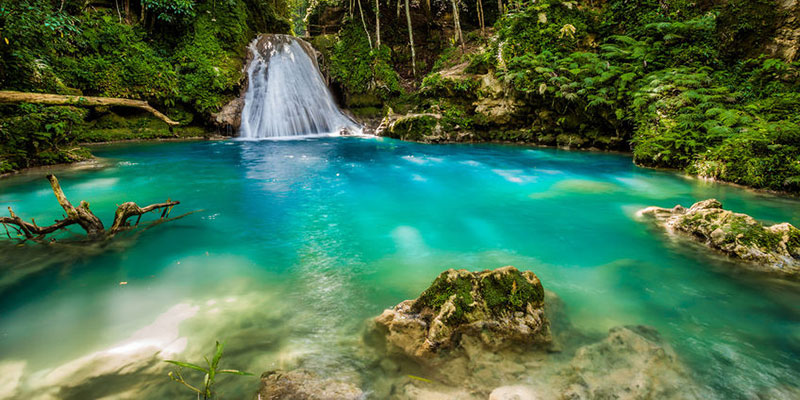Although the name Jamaica is derived from ‘land of wood and water,’ population growth and the threat of continued drought have led leaders to consider desalination, once rejected because of high energy costs.
With a growing population and infrastructure woes, existing freshwater resources must be supplemented
Jamaica was partially named for its water. Derived from a Taino word “Xaymaca,” Jamaica is literally the “land of wood and water.” But, like many regions gifted with rich water resources, the human population’s water requirements are quickly outgrowing the resources, to the point that water restrictions are common in the Caribbean island nation.
In May, the country’s National Water Commission (NWC) announced that 35,000 of its customers were being affected by water shortage. Many Jamaicans already are used to regular water “lock-offs” that occur several days per week. These service outages are common due to a pervasive problem with non-revenue water in an ancient, leaky pipeline network.
Bracing for Drought
To make matters worse, many of the United Nations Caribbean small island developing states (SIDS) — including Jamaica — have experienced drought conditions in 2019. Such droughts are expected to become more frequent with climate change, leading the U.N. to stress climate resilience throughout the region. Now, Jamaica and the Caribbean are being told to prepare for a drier-than-usual 2020.
Some Jamaicans now use untreated water, which may not be safe, or store rainwater water in barrels. But such standing water is a public health hazard, inviting mosquitoes that carry Zika virus, dengue fever, and chikungunya.
Although the government has been trucking water to communities, it also recently warned the public to beware of unscrupulous private vendors of unsafe water, who are exploiting drought conditions.
New Water Strategies for Jamaica
In response to the deteriorating water situation on the island, Jamaica is setting ambitious targets and exploring efficient technologies that are suited for island environments. Elizabeth Emanuel, director of the Vision 2030 Jamaica Secretariat program, said:
We need to recognize, as a country, the important linkages between efficiency, profitability and environmental conservation. [W]e all have an interest and an economic opportunity in using and managing our water resources wisely and in a sustainable way.
One of the new technologies in Jamaica pulls water from the air. On the roof of the University Hospital of the West Indies in Kingston, solar-powered hydropanels condense pure water from the humid, tropical air, reducing plastic waste from water bottles while producing more water than needed by patients. The technology is being considered for wider use on the island.
Decentralized Desalination
In keeping with Jamaica’s National Development Plan, the government has set a goal of 100% drinking water access for Jamaica by 2030.
Sen. Pearnel Charles Jr. of the Ministry of Economic Growth and Job Creation has been Jamaica’s point person in addressing the water shortages. Charles has set his sights on a state desalination build-out, while maintaining a strong community dialog about the improvements. He does not envision a traditional large-scale plant that simply feeds into established storage facilities. He explained:
It doesn’t have to be that way […] The desalination could be placed, depending on the size of it, in specific areas. The benefit of the technology, as it is now, is that it presents opportunities to create small water treatment plants, small or large desalination plants.
Charles went on to explain that desalination was not considered for Jamaica before because of prohibitive costs, but stated, “We have to talk about it now … the discussions have started.” Decentralized treatment can slash the steep cost of building, or in Jamaica’s case, reconstructing, a degraded water grid.
Fluence specializes in desalination technology, packaging, and financing structures ideal for decentralized systems in Caribbean island environments, with several plants already operating in the region. Contact Fluence to find out just how quickly Smart Packaged NIROBOX™ desalination units can be deployed to secure a resilient water future.

